New Jersey-based supplier of coated fabrics and nonwovens adds manufacturing plant in North Carolina and plans a third plant for Phoenix
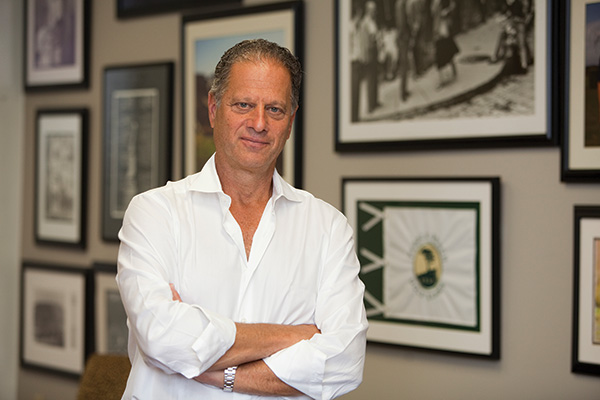
When Precision Textiles opened a manufacturing facility last fall in Troy, North Carolina, the company followed the motto of the town: Set your course. As the first venture away from its home manufacturing base, Precision Textiles is following a growth plan based on stepping up its commitment to the mattress industry.
The global supplier of coated fabrics, nonwovens and laminates, which specializes in fire-retardant materials for mattresses, has marched to the beat of its own drummer in the mattress industry for almost two decades.
And now it is picking up the pace with the opening of its Troy facility and a new plant due to open this summer in Phoenix.
Established in Totowa, New Jersey, in 1987, Precision Textiles began serving the apparel industry domestically and then moved overseas to serve the textile makers who moved there.
But in the mid-2000s when the bedding industry began focusing on the first new federal mattress flammability standard in more than 30 years, company officials saw an opportunity to build a new business, one that would become critical to its future.
Meeting the standard
Precision Textiles had some experience in the flammability field, producing turnout gear for firefighters, and it had some equipment on hand to produce flame retardant materials.
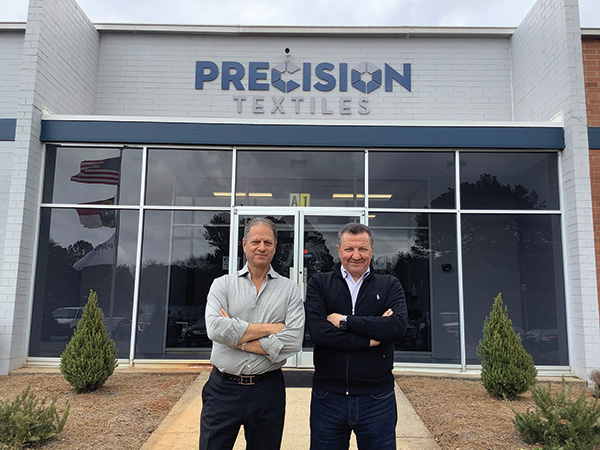
As bedding producers began ramping up their FR programs, Precision Textiles had orders for mattress materials that could be used to help producers meet the upcoming federal FR standard.
That standard, which required all mattresses sold in the United States to resist ignition from open flame sources such as candles, matches and cigarette lighters, took effect July 1, 2007, ushering in a new day for mattress producers and suppliers around the world who wanted to serve the U.S. market.
Precision Textiles answered the call of that new day and has built its FR offerings into a key part of its portfolio.
“When the apparel industry moved offshore, we felt bedding was the right way to go,” recalls Scott Tesser, Precision’s president and chief executive officer. “We decided to focus on domestic manufacturing and on serving Tier Two bedding producers. At that time, we weren’t ready to serve the majors.
“We found ourselves in a great position. We looked at our bedding business from an innovation perspective rather than just marketing another nonwoven product. We have built our business on quality and on service. We service our customers so well that we have become part of their quality control process.”
With its expanding manufacturing footprint, and the new North Carolina plant located close to several bedding factories in the Southeast, Precision Textiles is ready to take its service-oriented approach and growing mattress offerings to major bedding makers, Tesser says.
In the mix
Last year, Precision Textiles introduced its IQFit Glass Free brand of FR barriers for mattress foam cores. The product, which contains no fiberglass, can be used as an FR sock or in a wide-width format laminated to mattress ticking fabric.
Keith Martin, vice president of Precision Textiles, says the line “demonstrates our ongoing effort to deliver a safe sleep experience for consumers and to help our customers streamline the bedding manufacturing process.”
The IQFit Glass Free products are made with FR cellulosic fibers, which provide robust FR protection with no chemical finish, and feature a soft hand, a trait that today’s mattress shoppers value, the company says.
In the sock format, the product conforms to the mattress “like a glove,” Martin says.
The IQFit Glass Free line is certified for low chemical emissions under UL’s Greenguard Gold standard.
At the recent International Sleep Products Association EXPO in Florida, Precision Textiles introduced another IQFit product, the Contour, which it said is a 100% glass free knit construction designed to work with four-way stretch ticking and won’t compromise the feel of the mattress.
Precision Textiles also offers PurLoft, an alternative to synthetic high loft FR barriers. It is made with wool fibers, which are inherently flame retardant, the company says.
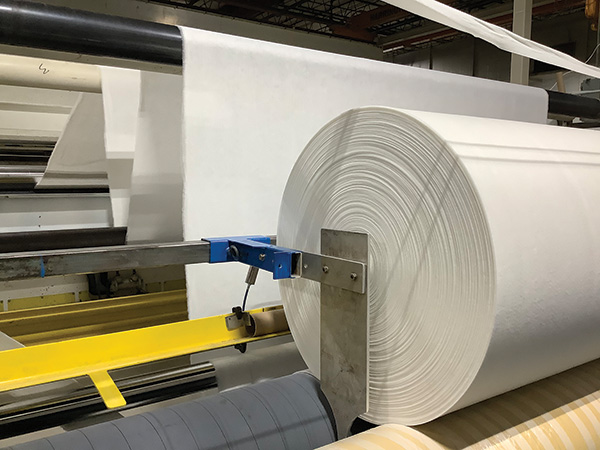
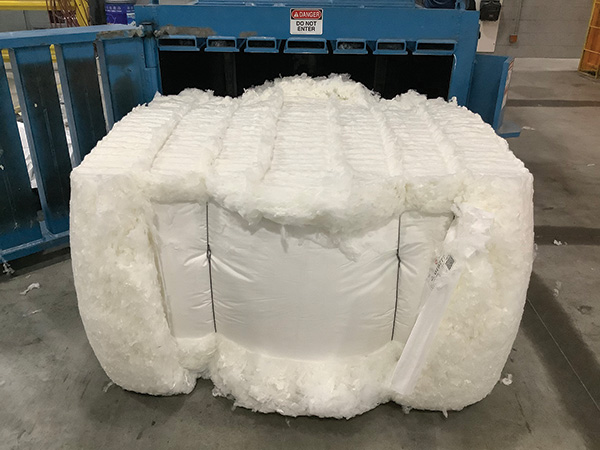
Used directly under the mattress cover, the wool creates air pockets that act as natural insulators to help regulate body temperature. It also offers moisture management, as well as odor and allergen protection. And wool fibers help the mattress retain its shape, making it more durable, the company says.
“We have always been at the forefront of sustainability,” Tesser says. “Our research and development team continues to work with that goal in mind, and they have once again
developed an innovation solution, backed by service and quality, to demonstrate our ongoing commitment to the environment with products that help meet our customers’ needs.”
FireFlex Felt, another FR product, provides protection for laminated borders with inherently FR fibers. The product, made without chemicals, improves cutting and sewing efficiency versus traditional FR high-loft laminates, the company says.
Precision Textiles’ portfolio can meet any bedding producer’s FR needs, according to Tesser. “We are known as the FR solution provider,” he says. “Our customers rely on us for any FR issue.”
When the Covid-19 pandemic first hit, the company showed its nimbleness by making hygienic mattress testing kits.
Those nonwoven sheets cover the mattress and pillow for retail shoppers who want to lie down and try the sleep set in a clean environment before buying.
Then and now
Founded in 1987 as Precision Custom Coatings by Peter Longo, the current chair of what would become Precision Textiles, the company began as a supplier within the apparel industry. Longo, a mechanical engineer, started with five employees.
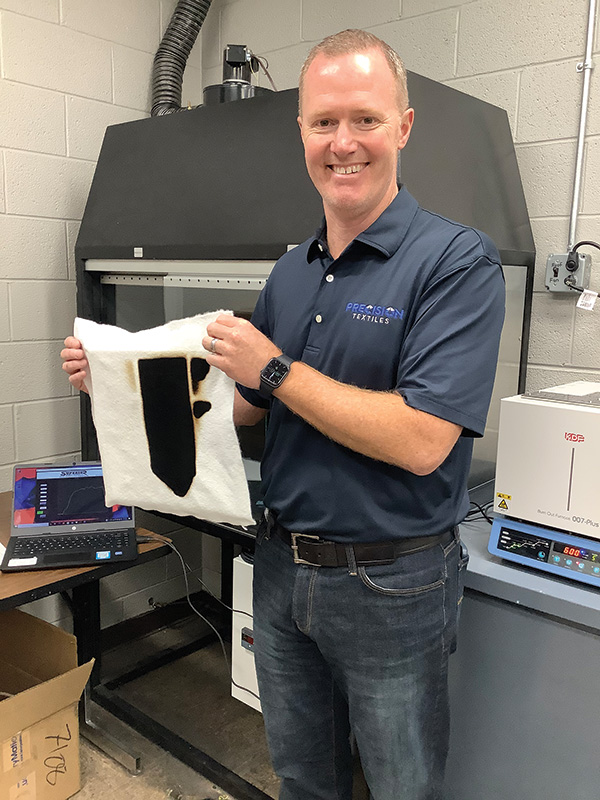
Today, the company has more than 300 employees. Tesser, born into an apparel family (his grandfather founded Tesser Textiles in 1920), joined Precision when the apparel business moved offshore.
In 1998, Longo and his then partner sold the company to a private equity firm, but that ownership didn’t last long. Two years later, Longo and Tesser acquired the company and began looking for new opportunities.
In 2004, the company moved into the automotive industry, first supplying car manufacturers with materials for speakers, upholstery liners, and dashboard and door panel insulation.
Precision Textiles continues to serve the health care field, providing hospital gown fabrics and nonwovens for N95 masks. That is a growing part of its business.
But the bedding category takes up most of Precision Textiles’ business these days, Tesser says. The company sold its apparel business several years ago.
The company operates globally. In addition to what soon will be three manufacturing plants in the United States, Precision Textiles owns warehouses in Totowa, New Jersey; Archdale and Troy in North Carolina; Clearwater, Florida; Fort Worth, Texas; and Los Angeles.
Precision’s “global value chain” includes fiber manufacturing plants in China, Malaysia, Turkey and Vietnam.




